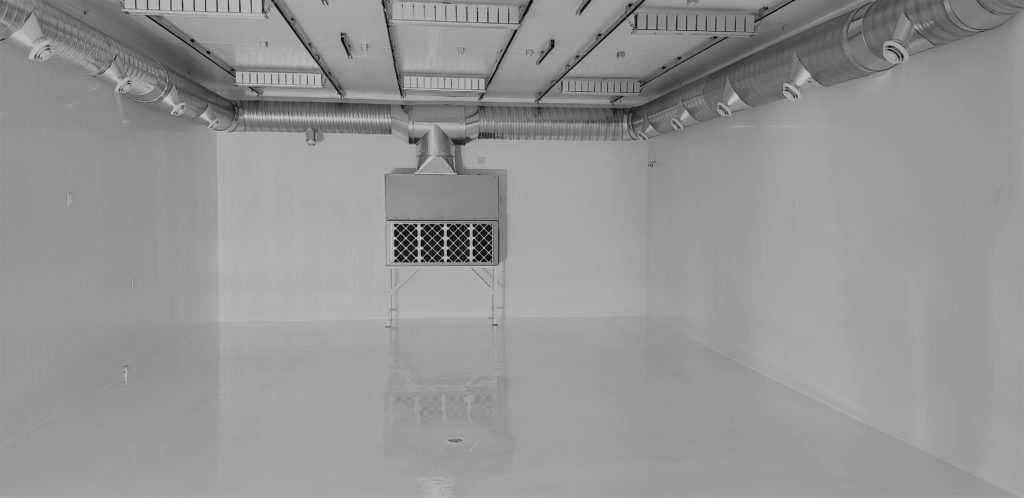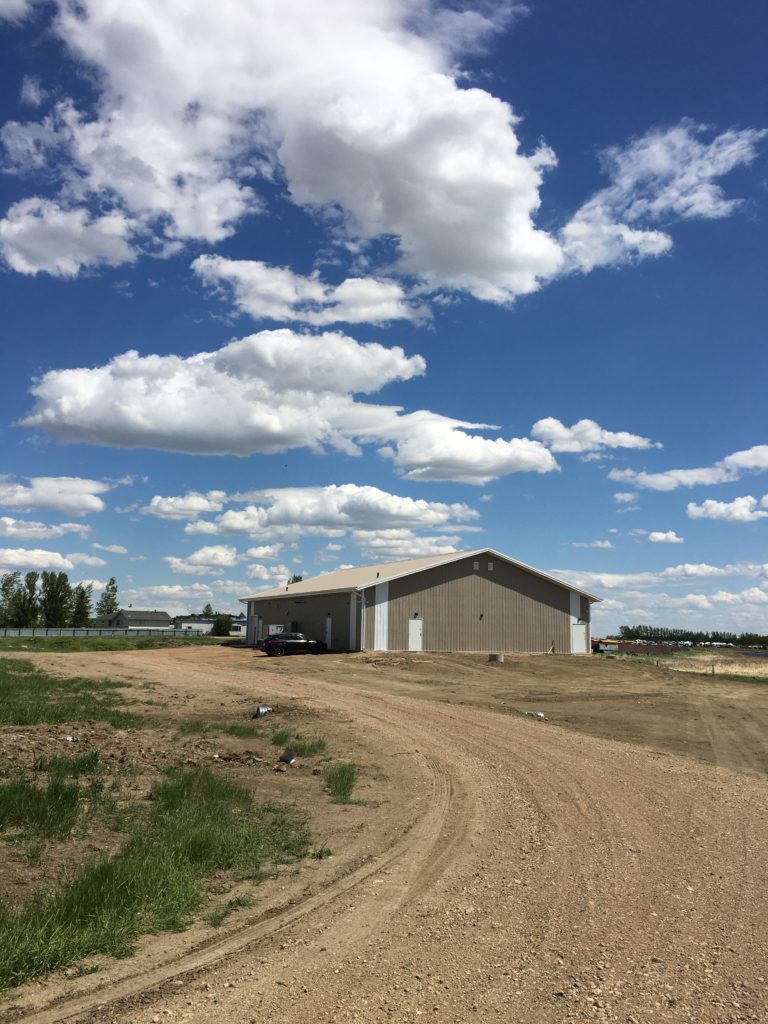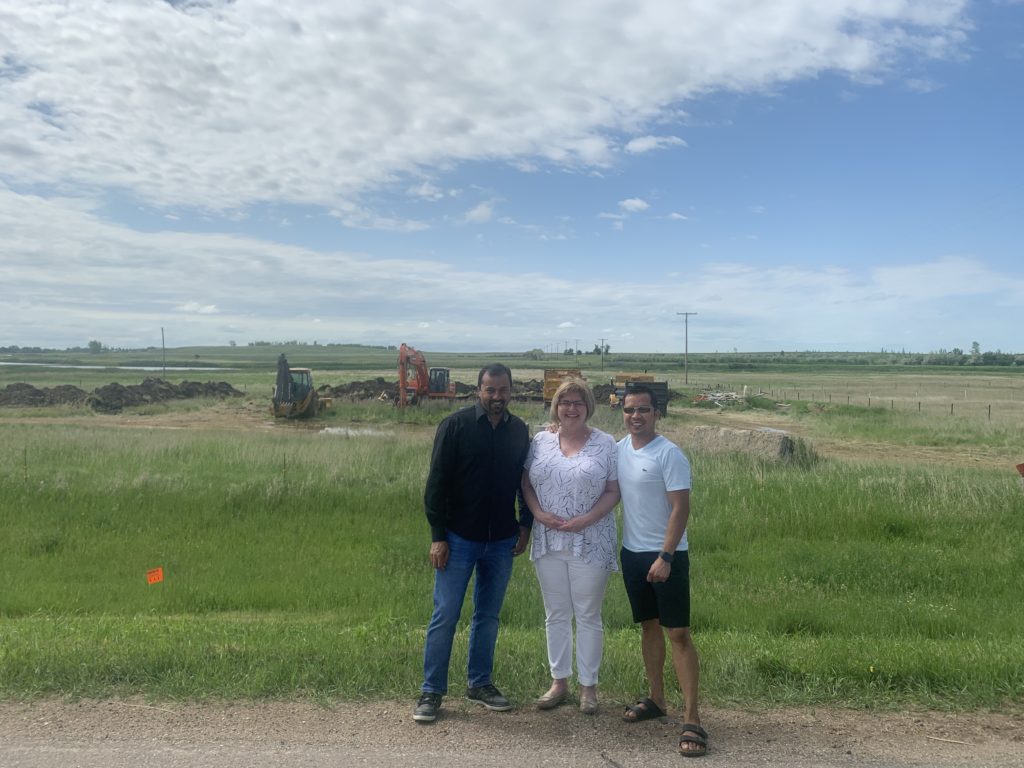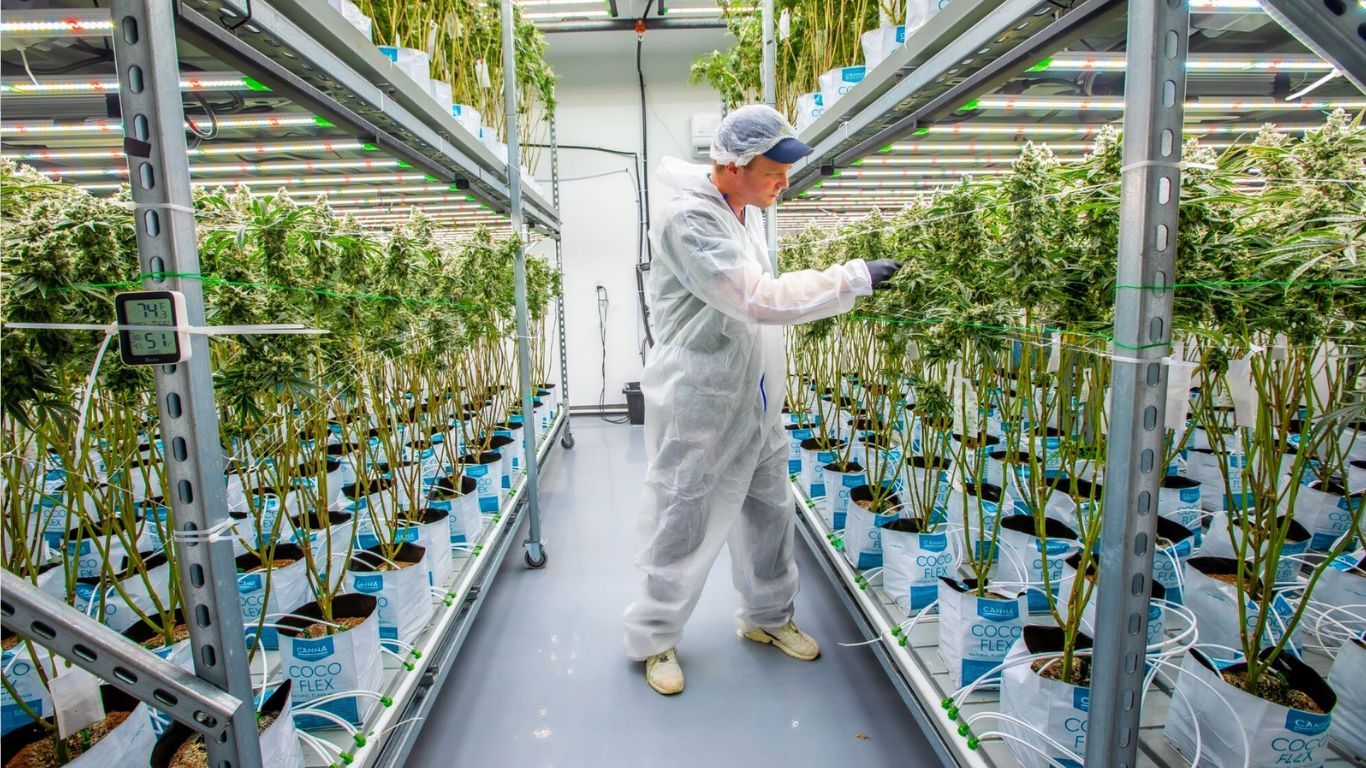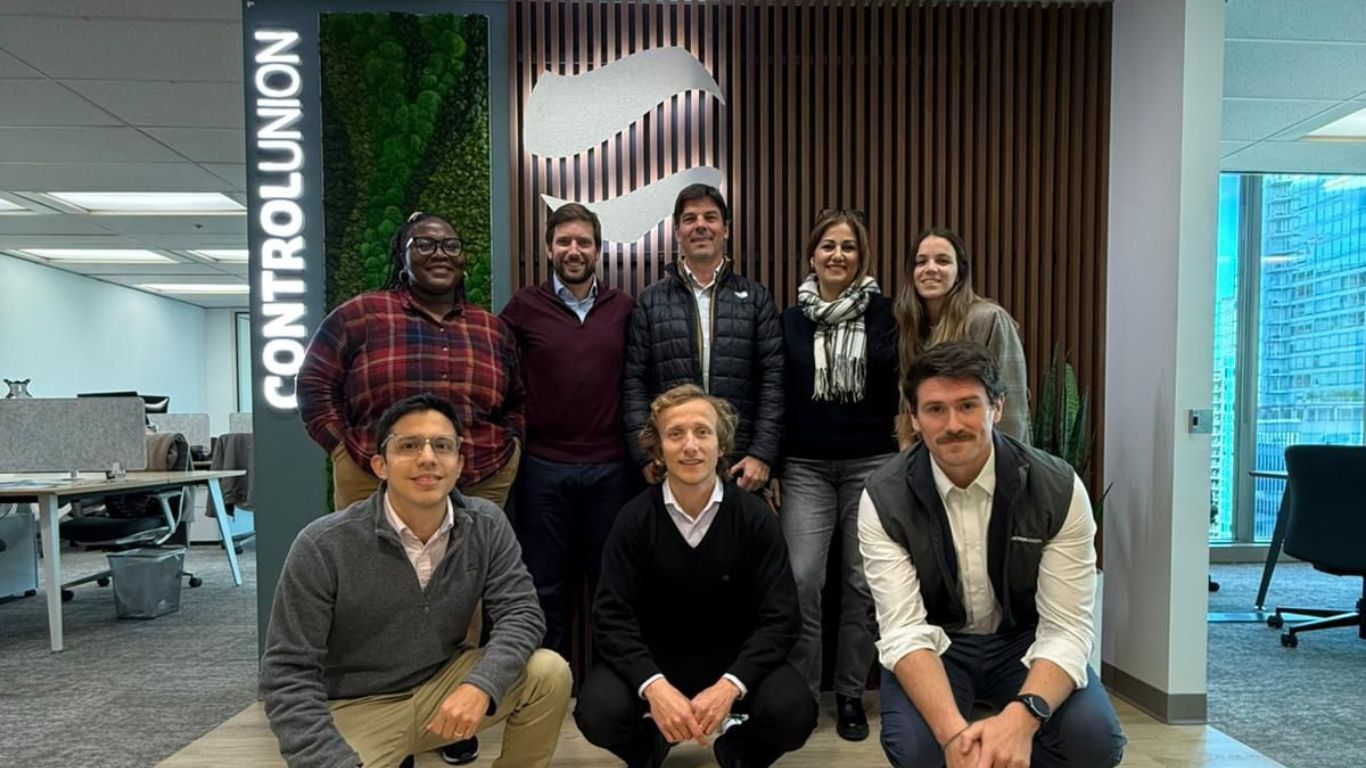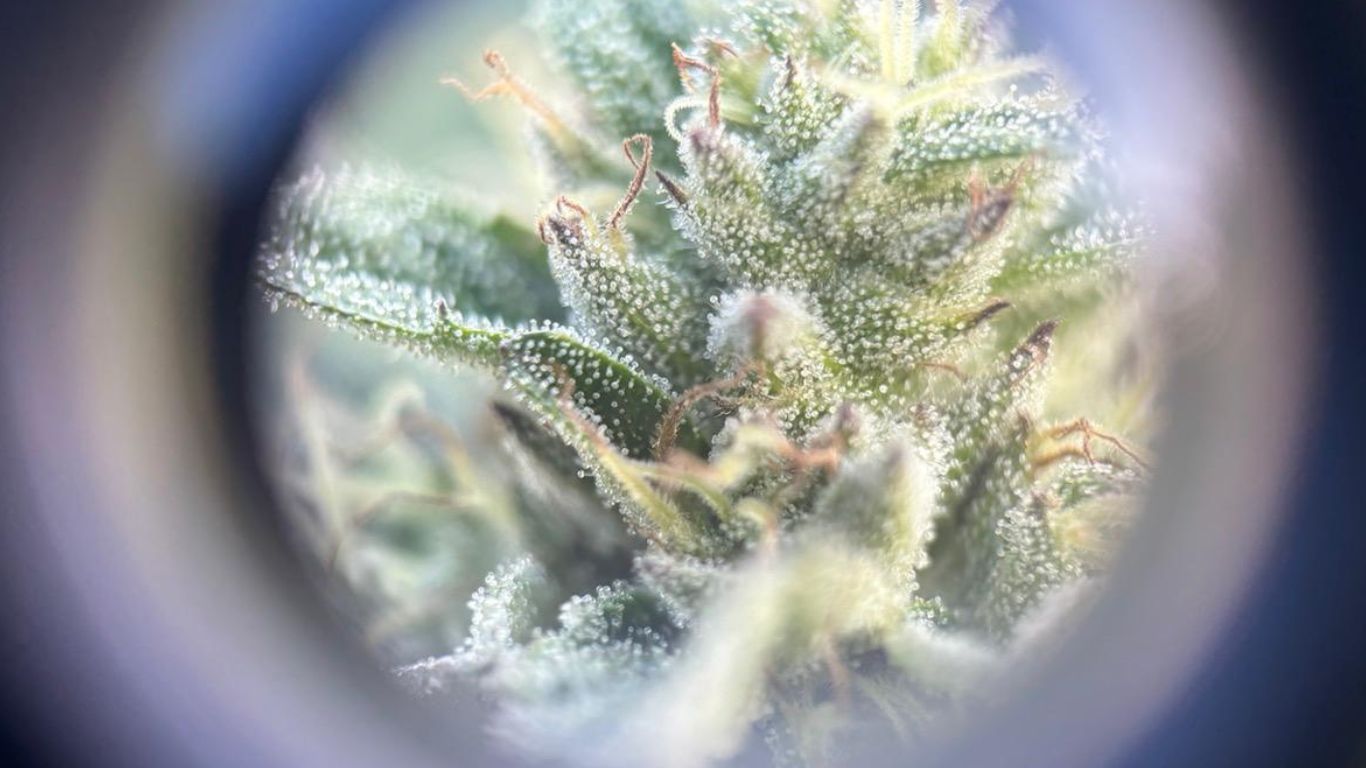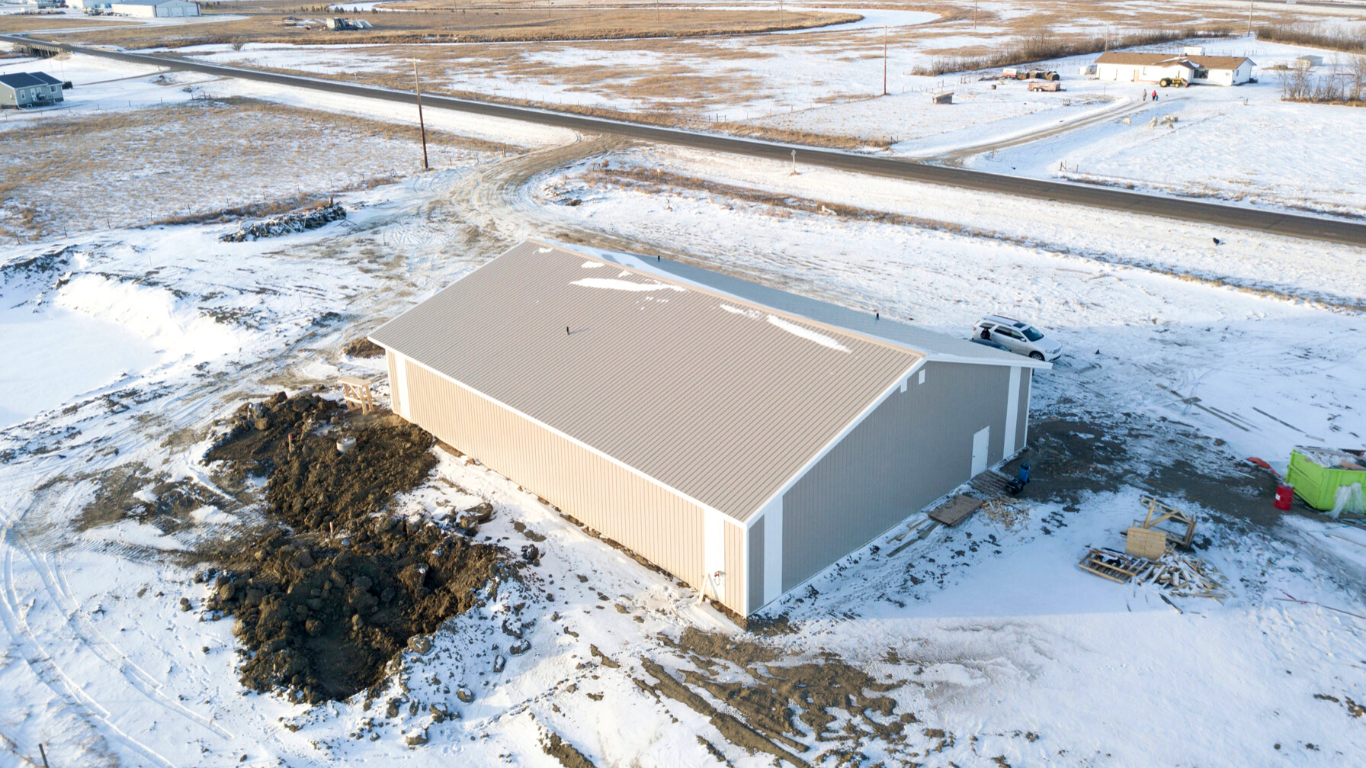
| COMPANY: | Zevk Cultivation |
| LICENCE TYPE: | Micro-Cultivator |
| APPROACH: | Hydroponics |
| TIMELINE: | ~5 months |
| COST: | ~$1.1 million |
| FACILITY: | Purpose built, indoor, hydroponics |
Muhammad Shahbaz is the co-owner and CEO of Zevk Cultivation in Weyburn Saskatchewan, who received their cultivation licence in June 2020.
Zevk, a Turkish name meaning “delight”, is the brainchild of Shahbaz and his partner Sonny Sacopon. Shahbaz says he got the idea to start his own micro cannabis application after working with a tentatively larger cannabis company who had been looking to develop a facility in Saskatchewan.
Shahbaz says he teamed up with his partner to find funding, and a location. They found Constance M. Braun as their investment partner and began building out their facility in October, 2019. They applied in January 2020 and received their licence about five months later in June.
A personal medical grower, Shahbaz says he was able to migrate in around thirty strains that he had collected and developed under his personal licence, and hopes to begin planting his first two cultivars, 24k Gold and Super Silver Haze, two strains he says he really enjoys growing and thinks will work well in this small, indoor setting.
I spent my whole life as a plant scientist and I was a son of a farmer, so I’ve always been around plants and crops. I think my science background gives me a good advantage.
Shahbaz estimates Zevk’s new, purpose-built facility probably cost them just over a million dollars to develop, including the cost of the land. Initially they are planning to grow in two rooms that will make up about half of the allotted 200m2 for a micro cultivator, before they finish construction on their final two rooms and refine their hydroponic processes.
What I did was make sure I made everything simple and straightforward, especially in the design of our building.
By taking their time to grow the business and facility progressively, Shahbaz says he’s relatively confident they can find a place in the market. Being positioned in Saskatchewan is also an advantage, he says, since the provincial market is a bit more streamlined, not having a mandated provincial distributor.
“In Saskatchewan, it’s better than other provinces because we can sell without a distributor and can better maintain our own brand,” he explains. “There are still a lot of middle men in this industry, from the processors to brokers, but we hope to build a relationship with a processor who can help streamline the process more. Living and doing business here, I would love to see my product in Saskatchewan first.
“I want to take a few years to focus on developing my brand as a small company, then maybe I can look at expanding,” continues Shahbaz. “I’m not chasing money. I feel pride when producing a good product. When our product is in the market and people know our name, that will be my goal. Not expanding and chasing money.”
Shahbaz says his history with plants as well as with highly regulated systems, and understanding quality assurance through his time in academia all helped prepare him for the legal cannabis industry and its myriad regulations. He received his PhD from the University of Groningen in the Netherlands, then joined Colorado State University in Fort Collins, USA for three years as a Postdoctoral researcher to work on a USDA funded project. He created some genetically modified poplar plants through tissue culture and studied nutritional effects before moving to Massachusetts to work at the Worcester Polytechnic Institute. He then found himself moving to Saskatchewan to work on a large cannabis producer project that he says never came to fruition.
Once he left that project, he says he became inspired to strike out on his own and felt the micro licence category was a good, affordable entry point. After he and his partner found the right financing and location, it was full steam ahead.
So it’s better to build it to their standard, rather than making their standard fit your building.
“When the other project didn’t work out,” explains Shabaz, “I decided this was still something I wanted to do. I spent my whole life as a plant scientist and I was a son of a farmer, so I’ve always been around plants and crops. I think my science background gives me a good advantage.”
“When I started working in cannabis, I saw that most of the stuff that cannabis growers talk about, especially in the legacy or black market, is often very far from scientific. So I found I often had to explain what I think as a plant physiologist.”
Shahbaz attributes Zevk’s relatively fast, five-month turnaround on their application to his background in quality assurance and plant science. He says he thinks some applicants run into trouble because they confuse their experience growing cannabis with knowledge of how to work in a highly regulated environment.
“What I did was make sure I made everything simple and straightforward, especially in the design of our building. I have a background in quality assurance so I understand how to build the operation in a way where you walk in product from one side and everything moves from one room to another. I had only one RMI so I think we did a great job.”
“If someone takes the time to read the regulations and the guidelines, I think it can be very simple. But if you don’t and you build everything first and try to make your concept fit into the requirements, instead of the other way around, then it will take longer with more RMI’s.
“I think a lot of people blame Health Canada,” he continues. “And they are to blame up to a certain limit. But I think half of the time the thing is a lot of people start to build without thinking about what needs to be built, or how it should be. They think they can do whatever they like. So they start with that and then try to explain to Health Canada afterwards, so the reviewer will have a hard time understanding what they are trying to explain. So it’s better to build it to their standard, rather than making their standard fit your building.”
“My advice is if they want to do a micro cannabis operation, they should listen to the people who have a little bit of knowledge and experience. If I’ve cooked for myself for twenty years, it doesn’t make me a professional chef. I have to read, I have to learn from somewhere how to be a professional chef. Cannabis is the same”
Although he cautions people on taking the leap into the legal market if they’re aren’t ready for a regulated, legal industry, he says he sees plenty of opportunity for those who take the time to do it right. Even as more and more producers get licensed, he says he sees plenty of space.
“It doesn’t matter how saturated the market is, if you have a good product, a micro will be able to get it to market, I think. But it will take only those who have a passion for growing and know how to do this in a regulated environment. Those who think they can build a facility and just hire someone to run the show, in the long run, I don’t think it will work. Only those with passion and a good product will survive in the long run.”
One of the current challenges for growers, he says, is the current market obsession with high THC levels, as well as potentially misleading practices from some growers and labs.
…nowadays everyone just goes by THC and I’m not sure how to change that, except to show them with better products.
“I really want to see the market move beyond just THC. I really doubt the testing facilities – there should be a standard protocol or method for testing – some are claiming 28 or 29%, I have a science background, and understand how to run an HPLC, I know how they can (manipulate) these for high readings. This needs to be regulated by Health Canada to create a standard.
“It will take time to educate the consumer. Eventually we will get there, but nowadays everyone just goes by THC and I’m not sure how to change that, except to show them with better products.”
Having lived in so many different places in his professional life, Shahbaz jokes that legalization seems to follow him.
Sometimes I joke that I am good luck for legalization,” says Shahbaz. “Since 2007, wherever I have lived it was already legal or became legal. I was in the Netherlands and it was legal there. In 2011 I moved to Colorado and the next year it became legal there. Next I moved to Massachusetts and it became legal there. And then I moved to Canada in 2017 and next it became legal here. So I like to say I didn’t follow legal cannabis, it followed me! So I just had to fall in love.”
Shahbaz is willing to help if anyone needs him for their application or building process.


